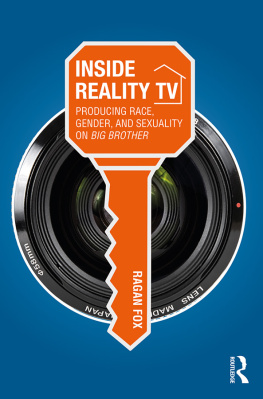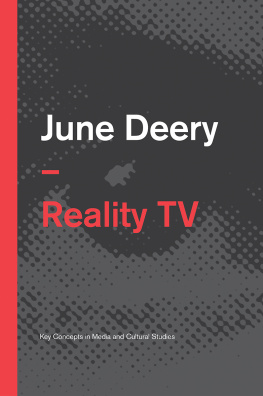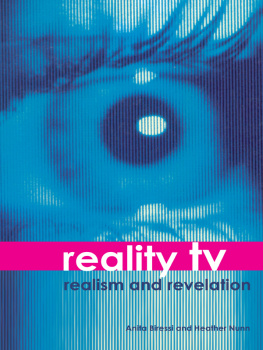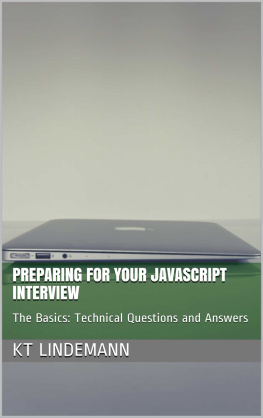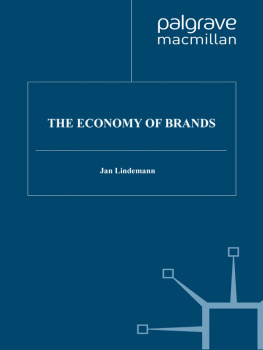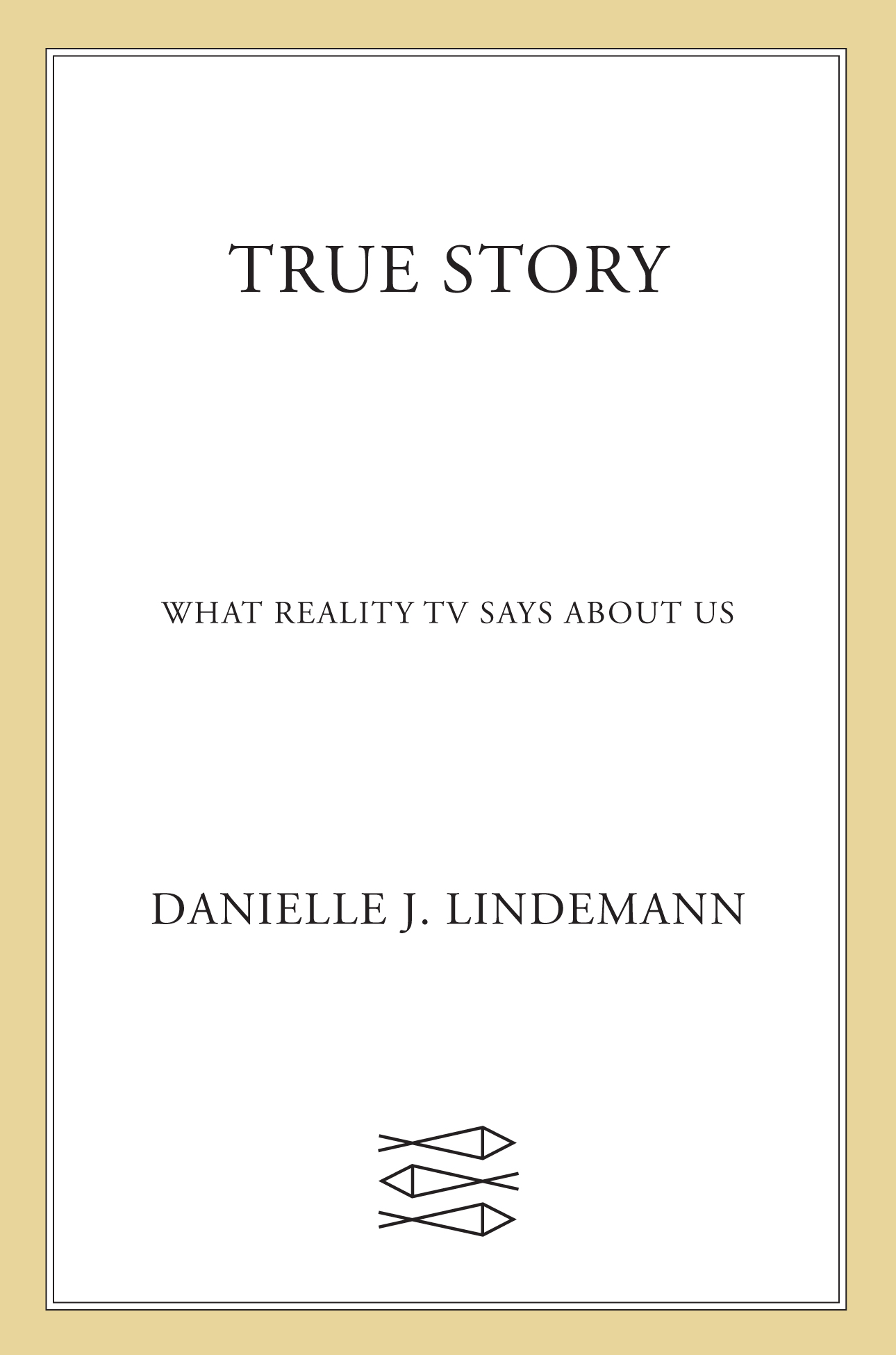Contents
Guide
Pagebreaks of the print version

The author and publisher have provided this e-book to you for your personal use only. You may not make this e-book publicly available in any way. Copyright infringement is against the law. If you believe the copy of this e-book you are reading infringes on the authors copyright, please notify the publisher at: us.macmillanusa.com/piracy.
For Fiona
Make two lists.
In column A, write down as many current U.S. Supreme Court justices as you can name, just off the top of your head. In column B, do the same but with Kardashians.
I recently assigned this exercise in my Introduction to Sociology class. Among the nearly two hundred undergraduates, only three could name all nine justices, and only one student had a longer column A. I dont point this out to throw my students under the bus. In fact, I have difficulty remembering all of the justices. And, to be fair, there are more Kardashians than justices (particularly if you include the Jenners) and the family keeps replicating. Still, when more students at an elite university can name Kim Kardashians children than can name Sonia Sotomayor, its time to start taking reality TV seriously.
The Real World, arguably the first reality TV show, debuted on MTV more than a quarter century ago. Since then, the genre has exploded, with twenty-three million people watching Darva Conger and Rick Rockwell get hitched on Who Wants to Marry a Multi-Millionaire?
You may call it a guilty pleasure or, if youre feeling less charitable, trash or train-wreck TV, or perhaps, like Ted Koppel, you may wonder aloud if the genre marks the end of civilization. Anecdotally, my own encounters with strangers, colleagues, and friends support these findings. A new acquaintance, for instance, declared that he doesnt watch reality TVmoments later clarifying that he had only seen The Anna Nicole Show, Logos Fire Island, and all of RuPauls Drag Race, obviously. I have this kind of conversation a lot.
But even for those who really dont watch, knowledge of these programs has become part of the cultural ether. It reaches us in unavoidable fragments: product lines, Instagram posts, advertisements, snippets of conversation, referents in scripted media, and intersections with news and politics. It infuses our own personal realities, leaving even highbrow consumers and skeptics with the hazy mental images of a New Jersey housewife flipping a table and a man extending an index finger to punctuate the words Youre fired!
WHY SHOULD WE CARE ABOUT REALITY TV?
An often ridiculed form of entertainment, seemingly marginal to the serious business of life, reality TV is in fact a pop-cultural touchstone that illuminates our everyday experiences and can help us to make sense of complex social forces. The genre is a fun-house mirror, to be sure, but one that powerfully reflects the contours of our social world. It takes the elements that are central to our cultureour collective preferences, our norms and taboos, and the jagged edges of our social inequalitiesand beams them out to us in frenetic detail.
The idea that pop culture can teach us about ourselves is nothing new. Media researchers have long suggested that television reflects our values as a culture.
And reality TV is particularly primed to reveal these patterns. Because it is not overtly scripted, much of its drama, intrigue, and conflict relies on casting people who are dissimilar to one another, exposing the categories of difference that are patchworked into our society. This was apparent from the first season of the show The Real World, which grappled with broad issues of inequality by race, class, gender, and sexuality. The genre also rivets us with cultural contradictions: Amish folks ambling through Times Square, Snoop Dogg and Martha Stewart cooking dinner together, rich ladies attacking each other with their Gucci bags. These unusual combinations often magnify real-life disparities and tensions.
The genre confronts us with the same social dynamics that exist, in muted form, in our own lives. Social critic Judith Butler has argued that drag queens, by presenting gender in an exaggerated way, expose our taken-for-granted gender norms. In the same way, by showing us extreme versions of everyday situations, reality TV magnifies the contours of our cultural landscape. The Real Housewives of Atlanta and Here Comes Honey Boo Boo, for instance, are not just entertaining to watch; through their exaggerated caricatures, they reveal the social fictions of race and class that we falsely assume to be natural and fixed.
It may seem counterintuitive that a genre focused on zany personalities and extreme cases has so much to teach us about our own ordinary lives. Yet scholars have long argued that we can learn about core features of society by looking at the extremes. The same behaviors that make reality TV participants cultural sideshows are also diffuse within our culture. These people are larger-than-life embodiments, for instance, of our own materialism, our obsessions with our bodies, and the steps we take to mold our children in our own images. The people on reality shows are people who are willing to eat bugs and take pregnancy tests on TV, but theyre parodies of ourselves. They dwell in the blurry space between the mundane and the disreputable, and they show us how we all do the same.
In showcasing all of these interesting people, the reality genre turns over stones that scripted programming leaves undisturbed. From debutantes to doomsday preppers, and from homemakers to hoarders, these programs cast a searchlight on the center as well as the nooks and crannies of society. Its perimeter is not all-encompassing, but even its absences help us understand which types of people we grant legitimacy as a culture.
Finally, its important to understand reality TV because watching it is not a passive experience. It changes us. There are direct links between the material on these shows and the ways people think about and move around in the world. As evidenced by Koppels remark about the end of civilization, this genre has long been a source of our cultural anxieties. And some research suggests that this concern may be warranted. In one experiment, for instance, participants who were exposed to an episode of the weight-loss show The Biggest Loser, versus an episode of a nature show, walked away with a significantly greater dislike of overweight individuals. Reality TV is important to understand, not only because of what it can tell us about our lives but because of what it does to us. The experience of watching these shows, like looking in any mirror, is interactive. We see ourselves, and then we groom ourselves accordingly.
WHERE IT CAME FROM, AND WHAT IT IS
Before getting into the nitty-gritty of what reality TV can teach us about ourselves, its important to pin down how this genre emerged and where its boundaries lie. Unfortunately, the answers to What is reality TV? and Where did it come from? are perhaps unsatisfyingly hazy. Reality TV is a social constructionand like all social constructions, as well see throughout this book, its slippery.
Theres some question about when or where, exactly, reality TV began. Some media historians locate its beginnings in the quiz shows of the 1950s or the romance-oriented game shows that sprang up in the 1960s (e.g., ABCs


